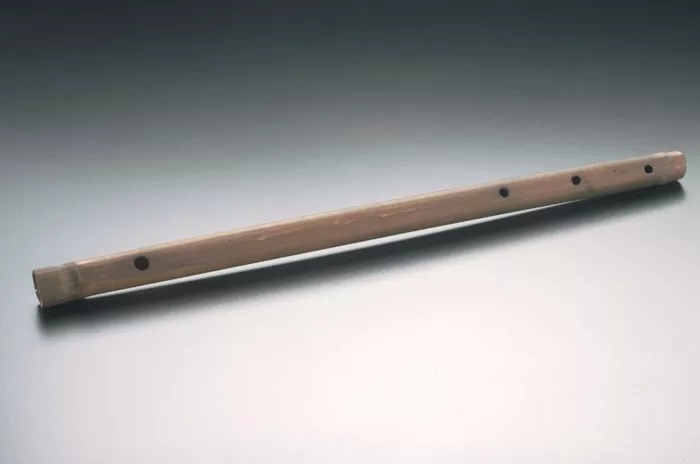Welcome to Poem of the Day – Thoreau’s Flute by Louisa May Alcott
Thoreau’s Flute is a reflective and gentle poem by Louisa May Alcott. It honors Henry David Thoreau, the American philosopher, naturalist, and writer known for his deep love of nature and his belief in simple living. The poem uses the image of a flute to capture Thoreau’s spirit, his connection to the natural world, and the quiet wisdom he carried.
In this article, we will explain the meaning of the poem in a clear and simple way. We will look at its themes, its use of language, and the way it expresses important ideas about life and nature.
Thoreau’s Flute Explanation
A Simple Summary of the Poem
The poem begins by introducing a quiet, peaceful scene. A flute lies still, no longer played by its owner. Yet in the silence, its music seems to live on, echoing through the woods and across the hills. This flute once belonged to Thoreau. Through it, he shared the music of nature and the thoughts of a gentle soul.
Even after his death, the poem suggests, Thoreau’s spirit continues to speak through the natural world. The birds, the breeze, and the trees all carry his message. The poem honors the way he lived: close to nature, alone but not lonely, peaceful, and wise.
Theme 1: Nature as a Living Voice
Nature is central to the poem. It is not just the setting, but almost a character in itself. Alcott shows how Thoreau’s music blends with the sounds of nature. The flute is described as making music that lives in the wind and the trees. This reflects the idea that nature is not silent. It speaks, it sings, and it teaches.
Thoreau believed that people should live close to nature and listen to its quiet truths. The poem shares this belief. Even though Thoreau is gone, his music lives on in the natural world. This shows a deep respect for the power and presence of nature.
Theme 2: Simplicity and Quiet Strength
The poem also highlights the beauty of a quiet life. Thoreau was not a loud or famous man during his time. He did not seek attention. Instead, he lived simply and found joy in small things—like the sound of a bird or the ripple of a stream.
Alcott honors this way of life in the poem. The flute, a simple wooden instrument, becomes a symbol of Thoreau’s peaceful soul. Its music is not grand or loud, but it is full of meaning. This shows that quiet lives can have a strong and lasting effect.
Theme 3: Legacy Beyond Death
Another theme of the poem is the idea that a person’s spirit can live on after death—not in fame or monuments, but in the things they loved. For Thoreau, this means the trees, the lakes, the wind, and the sounds of nature.
Alcott shows that though Thoreau is no longer alive, his love for nature remains. His ideas, his music, and his quiet strength continue to inspire those who walk in the woods or listen to the wind. This is a peaceful and comforting idea. It suggests that a life lived with care and meaning never truly ends.
The Flute as a Symbol
The flute in the poem is not just an object. It is a powerful symbol. It stands for Thoreau’s voice, his soul, and his way of life. A flute makes soft, gentle music. It requires breath, care, and attention. This is very fitting for Thoreau, who believed in living with thought and purpose.
When the poem says that the flute still sings, it means that Thoreau’s message continues. Even though the man is gone, what he believed and what he loved still speak to us.
Style and Language
The poem is written in simple, clear language. It is not hard to understand, but it carries deep meaning. The rhythm is calm and steady, like the flow of a quiet stream. Alcott uses natural images—wind, trees, shadows, light—to create a soft and peaceful mood.
There is also a sense of music in the way the poem is written. The sounds of the words match the idea of the flute’s song. This makes the poem not only a tribute to Thoreau but also a kind of music itself.
A Tribute to a Gentle Philosopher
In Thoreau’s Flute, Alcott offers a quiet but powerful tribute to a man who found truth in nature and peace in solitude. She respects his choice to live simply and shows how his spirit continues in the world he loved.
The poem does not shout or preach. Like Thoreau, it speaks softly. But its message is clear: a life in harmony with nature is a life well lived. Even after we are gone, the good we do and the beauty we create can stay behind, carried in the wind, the trees, and the music of a simple flute.
Conclusion
Thoreau’s Flute is more than a poem. It is a quiet song of remembrance and respect. It reminds us to live simply, to listen to the world around us, and to find joy in the natural things that many people ignore. Through her gentle words, Louisa May Alcott invites us to hear the soft music of a thoughtful life—and to let it inspire our own.

